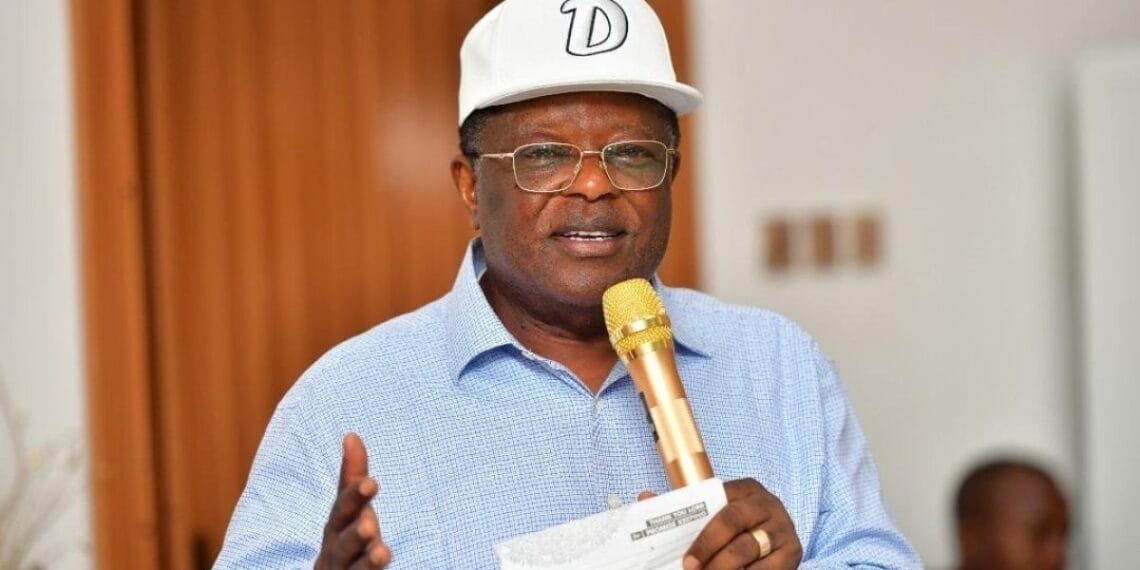The Federal Government requires more than N16 trillion to complete the massive backlog of road projects it inherited, this is according to the Minister of Works, Mr. David Umahi.
Speaking during a press briefing on Thursday in Abuja, Umahi outlined the staggering financial needs under President Bola Tinubu’s Renewed Hope Agenda, highlighting the challenges facing the nation’s infrastructure development.
Umahi disclosed that the current administration inherited an expansive 18,932.50 kilometers of ongoing road projects, distributed across 2,064 contracts. With the total value of these projects standing at N14.42 trillion as of May 2023, the funding gap has since increased due to economic factors such as the removal of fuel subsidies and the floating of the naira.
“The funding gap to complete all the inherited projects was about N13 trillion as of May 2023. However, given the current market realities, this amount has now increased to over N16 trillion,” Umahi stated, emphasizing the critical economic decisions made by the administration.
Umahi explained that the traditional method of funding highway projects through annual budgetary allocations has proven inadequate over the years. To address this shortfall, the Ministry of Works has adopted alternative funding mechanisms, including the Presidential Infrastructure Development Fund (PIDF) and Sovereign SUKUK issued by the Debt Management Office (DMO).
Umahi noted that 82 projects have already been approved under the SUKUK fund, with significant investments made between 2017 and 2023. This includes N100 billion invested in road construction and rehabilitation in 2017 and an additional N250 billion approved for 2023.
Read Also: Wike vows to stay and fight in PDP, you can’t bring me down he boasts
The Nigerian National Petroleum Company Limited (NNPCL) has also played a significant role in funding key highway projects. According to Umahi, the Federal Executive Council (FEC) approved N2.59 trillion for the funding of 65 highway projects under Phases I and II of the NNPCL Funding, covering a total of 6,358 kilometers. However, the total reviewed contract sum, due to inflation, stands at N5.288 trillion, leaving a funding gap of N2.702 trillion.
To bridge this gap, the Ministry has introduced the Highway Development and Management Initiative (HDMI) under the Public-Private Partnership (PPP) framework. This initiative aims to attract sustainable investments for road infrastructure development and maximize the use of assets along the Right of Way (ROW). Through HDMI, private-sector concessionaires will be able to recoup their investments via toll and non-toll revenues.
Under the Renewed Hope Agenda, four legacy highway projects have been prioritized for implementation to enhance connectivity across Nigeria’s six geopolitical zones and drive socio-economic development. These projects include:
– Lagos-Calabar Coastal Road Corridor (750 km)
– Sokoto-Badagry Road (1,068 km)
– Calabar-Abuja Superhighway Project (482 km)
– Akwanga-Jos-Bauchi-Gombe Road (439 km)
Umahi stressed that the Ministry’s mandate under the Renewed Hope Agenda encompasses the planning, design, construction, and maintenance of federal road infrastructure nationwide.
Umahi assures that with the renewed focus on alternative funding and strategic partnerships, the Federal Government is positioning itself to tackle Nigeria’s infrastructure challenges head-on, even as the N16 trillion funding gap looms large.






